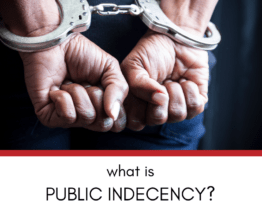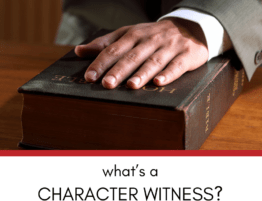
If you or someone you love is facing criminal charges in Chicago, it’s important to understand how the criminal justice system works. This can help you feel more confident and in control during what can be a confusing and overwhelming time. Here’s what you need to know about the criminal justice system in Chicago.
Arrest and Booking
The first step in the criminal justice process is arrest and booking. This occurs when a police officer takes someone into custody and charges them with a crime. During booking, the person’s personal information is recorded, they are searched and photographed, and their fingerprints are taken.
Related: What happens if you get a DUI in Illinois when you’re under 21?
Bail and Pretrial Release
After booking, the person has a right to a bail hearing. The purpose of a bail hearing is to determine whether the person should be released from jail until their trial, and if so, how much bail should be set. Bail is an amount of money that the person must pay in order to be released from jail. If the person can’t afford bail, they may be able to use a bail bondsman, who will post bail on their behalf in exchange for a fee.
Arraignment
The next step in the criminal justice process is the arraignment. This is the first time the person appears in court and enters a plea. The person can enter a plea of guilty, not guilty, or no contest. If the person pleads not guilty, the case will proceed to trial.
Related: What should you do if police stop and frisk you?
Pretrial Hearings
In some cases, there may be pretrial hearings, where the judge and attorneys discuss important issues in the case, such as the evidence and any motions that need to be decided. Pretrial hearings are also a chance for the judge and attorneys to see if the case can be resolved without going to trial.
Trial
If the case can’t be resolved without going to trial, the person will have their day in court. During a trial, the prosecution presents evidence and witnesses in an effort to prove the person is guilty of the crime. The defense also presents evidence and witnesses in an effort to show that the person is not guilty. After both sides have presented their case, the judge or jury will decide whether the person is guilty or not guilty.
Related: What is attorney-client privilege, and why does it matter?
Sentencing
If the person is found guilty, they will be sentenced. Sentencing is when the judge decides what the punishment should be. The punishment can range from probation to time in prison, depending on the crime and the circumstances of the case.
Appeal
If the person is found guilty and is unhappy with their sentence, they may have the right to appeal. An appeal is a request to a higher court to review the decision of a lower court.
Do You Need to Talk to an Attorney?
If you’ve been accused of a crime, we may be able to help you – and don’t worry: It’s completely confidential. Call us at 847-920-4540 or fill out the form below to schedule your free, private consultation with an experienced and skilled Chicago criminal defense attorney now.
Contact Us
"*" indicates required fields









